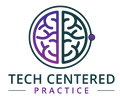ROI on CRM's for Small Businesses
Small businesses have known the value of CRM's for over a decade. In fact, a study put out by Nucleus Research put out all the way back in 2014 found that a CRM pays back $8.71 in revenue for every dollar spent on a CRM. But that isn't the only way group practices can earn an ROI. Let's look at the various ways that a CRM can be one of the most valuable investments you make this year for your practice. Let's look at some actual statistics on the ROI of CRM's.
Staff Productivity
One of the greatest rewards for business owners is knowing that you have just the right amount of staff for the job at hand. It can be hard to really gauge how many employees is needed to run an office. You may need administrative staff to make appointments, and also billers to manage all the accounts receivables regardless if you are billing insurance. But depending on the efficiency and organization abilities of each of those employees, you might notice a great difference in their ability to manage the multi-step complex processes of running a health care private practice.
Businesses that leverage CRM software see sales increase by 29%, sales productivity increase by 34%, and sales forecast accuracy increase by 42%. (Source: Salesforce)
With a CRM you can now capture valuable data to evaluate staff productivity and identify bottlenecks in your processes. You can also use that data to measure conversion of intake inquiries to actual clients. The data collection itself is a time saver but with all of the customized ways of setting up your CRM for your group practice, you can program simple repetitive tasks that bog down your employee so they can work more efficiently and personally with your clientele. It also helps them organize the processes so that no clients are falling through the cracks. In fact Using CRM software can increase sales conversion rates by up to 300%. (Source: Cloudswave)
Client Retention
A recent poll of CRM users found that 47% of respondents say CRM usage has a substantial impact on customer retention. An equal percentage say that CRM usage helped them increase customer satisfaction. (Source: Capterra) There are many ways you can improve client retention with CRM's. That might be setting it up to touch base with your clients in milestone moments and take the temp on their satisfaction can be game changers for group practices. Other uses might include seamless transition of care to other internal providers for specialty services or when their existing provider leaves the practice so you don't have to lose them all together to other agencies.
Nurturing Potential Clients
You may not have heard the term "nurture" before but it is the relationship that you are building throughout the intake scheduling process which should not exclude the relationship you are building if they don't end up scheduling. The later is often missed entirely by practice owners but let's start with the first. During the intake process you are likely making an impression by how quickly you respond to their request, answer their question, assure them that you can be of help. The CRM can actually assist with that so that you are consistent in that process responding to inquiries each and every time while taking it beyond the very first auto email responder. Looping your admins in when it is time to call, or collecting data to further the process towards that scheduled intake.
75% of businesses do not have a defined and functioning process for lead nurturing. (Source: Cloudswave)
The other type of nurture, but certainly not the only two available opportunities in practices is what are you doing when someone does not schedule? Are they in the wind? Why didn't they schedule? For some reasons why that intake never manifested, you can't do much about. Maybe they want to use their insurance and you don't take it. But for those who never respond after that initial request or could not find a provider who matched with their needs, there is another opportunity for you to nurture that potential client over time to come back and schedule. A CRM can assist you with managing that ongoing relationship by providing "drip content" to them slowly over time, helping them become familiar with your practice, building that trust in your brand, and helping them resolve any concerns or barriers that are preventing them from scheduling. When they do end up ready to schedule, you will be the first place in mind to call.
Business Impact
Survey data indicates that 64.2% of companies using a CRM rate the technology as “impactful” or “very impactful” to their ability to produce great results and grow their businesses. (Source: LinkedIn) It is hard to truly state how CRM's are game changers for practices. There is a reason why I call my most extensive implementation program the "Innovation Lab" because you will really be innovating the way you do business and wonder why you hadn't done it sooner. One of my most favorite moments was when I showed a client of mine (before the became a client) what the CRM looks like in offices like hers. She said "I feel like I have been doing business by carrier pigeon all this time!". That is what it feels like after you implement a CRM. You can't imagine how you did it before the CRM came into your practice.
